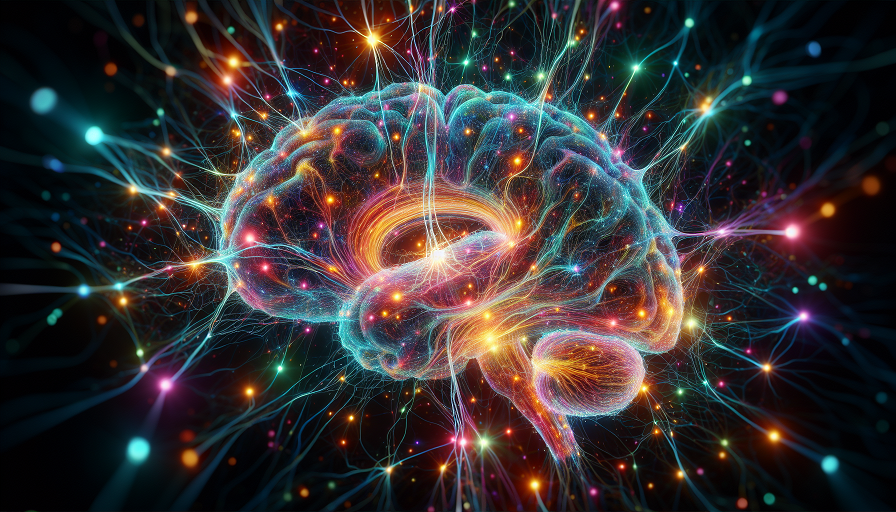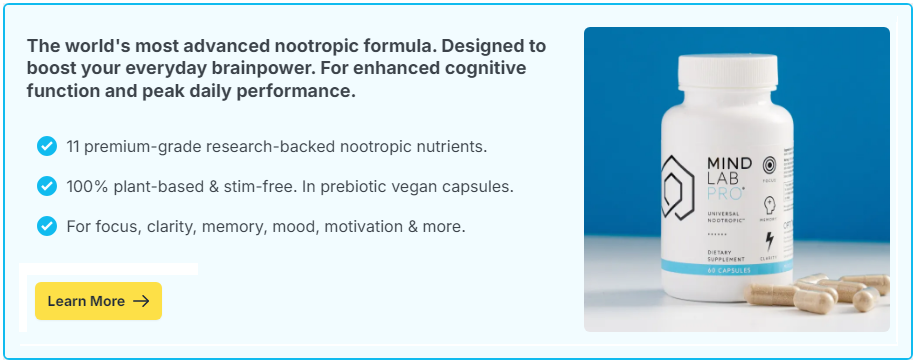
In today’s demanding world, mental clarity is essential for productivity, focus, and overall cognitive performance. Whether you’re a student, professional, or simply looking to stay sharp, enhancing mental clarity can provide a significant advantage.
Among the many nootropic supplements available, Rhodiola Rosea and Panax Ginseng are two of the most popular natural adaptogens known for their ability to reduce stress, enhance cognitive function, and improve mental performance. But which one is better?
Contents
What Is Rhodiola Rosea?
Rhodiola Rosea is an adaptogenic herb native to Arctic regions of Europe, Asia, and North America. Traditionally used in Russian and Scandinavian medicine, Rhodiola is known for its ability to reduce stress and improve cognitive function.
How Rhodiola Rosea Enhances Mental Clarity
Rhodiola Rosea enhances cognitive performance through several key mechanisms:
- Reducing Cortisol and Stress: Rhodiola helps regulate the body’s stress response by balancing cortisol levels, preventing stress-induced brain fog.
- Boosting Dopamine and Serotonin: These neurotransmitters play a crucial role in mood regulation, mental alertness, and cognitive flexibility.
- Enhancing Mitochondrial Function: Rhodiola increases energy production at the cellular level, improving mental stamina.
- Reducing Mental Fatigue: Studies suggest Rhodiola can combat cognitive exhaustion, making it ideal for long study sessions or workdays.
Scientific Research on Rhodiola Rosea
Several studies support Rhodiola Rosea’s effectiveness in enhancing cognitive function:
- A 2000 study in Phytomedicine found that Rhodiola supplementation improved mental performance and reduced fatigue in physicians working night shifts.
- A 2012 study on students taking exams found that Rhodiola Rosea improved mental processing speed and reduced stress-related cognitive impairment.
- A 2018 review in Frontiers in Pharmacology concluded that Rhodiola has neuroprotective effects and enhances cognitive resilience under stress.
Benefits of Rhodiola Rosea
Rhodiola Rosea offers several cognitive benefits, including:
- Improved mental clarity and focus
- Reduced stress-related cognitive impairment
- Enhanced mood and motivation
- Increased energy and mental stamina
- Protection against neurodegeneration
Potential Side Effects of Rhodiola Rosea
Rhodiola is well-tolerated, but some individuals may experience:
- Mild dizziness
- Insomnia if taken late in the day
- Increased heart rate (rare)
What Is Panax Ginseng?
Panax Ginseng, also known as Asian or Korean Ginseng, is one of the most well-known adaptogenic herbs in traditional Chinese medicine. It has been used for centuries to enhance vitality, improve mental clarity, and support overall cognitive health.
How Panax Ginseng Enhances Mental Clarity
Panax Ginseng supports brain function through multiple pathways:
- Increasing Acetylcholine Production: Acetylcholine is essential for memory formation, learning, and focus.
- Enhancing Brain Blood Flow: Ginseng increases oxygen and nutrient delivery to brain cells, improving cognitive processing.
- Boosting Energy and Stamina: Ginsenosides, the active compounds in Panax Ginseng, reduce mental and physical fatigue.
- Regulating Stress Hormones: Like Rhodiola, Ginseng helps balance cortisol, reducing stress-related cognitive decline.
Scientific Research on Panax Ginseng
Numerous studies highlight Panax Ginseng’s cognitive benefits:
- A 2010 study in Journal of Ginseng Research found that Panax Ginseng improved working memory and attention span in healthy adults.
- A 2013 clinical trial showed that elderly individuals taking Ginseng experienced better cognitive function and reduced mental fatigue.
- A 2020 meta-analysis concluded that Panax Ginseng has neuroprotective effects and can slow cognitive decline.
Benefits of Panax Ginseng
Panax Ginseng offers several advantages for mental clarity:
- Improved focus and attention span
- Enhanced memory recall
- Increased mental and physical energy
- Reduced cognitive fatigue
- Potential protection against neurodegenerative diseases
Potential Side Effects of Panax Ginseng
While generally safe, Panax Ginseng may cause:
- Headaches
- Increased blood pressure
- Sleep disturbances
Rhodiola Rosea vs. Panax Ginseng: Which Is More Effective?
Both Rhodiola Rosea and Panax Ginseng enhance mental clarity, but they have different strengths:
| Feature | Rhodiola Rosea | Panax Ginseng |
|---|---|---|
| Primary Benefit | Reduces stress and enhances cognitive resilience | Boosts energy and improves cognitive endurance |
| Best For | Managing stress, mental fatigue, and burnout | Increasing mental energy and focus |
| Time to Notice Effects | 1-2 weeks | 4-6 weeks |
| Best Time to Take | Morning or before mentally demanding tasks | Morning for sustained cognitive energy |
For those seeking to reduce stress, enhance resilience, and prevent mental fatigue, Rhodiola Rosea is the superior choice. It helps balance stress hormones, improves focus under pressure, and supports cognitive endurance.
For individuals looking to increase mental and physical energy, improve memory recall, and enhance long-term cognitive function, Panax Ginseng is more effective.
Some users choose to stack both for a synergistic effect—using Rhodiola for stress reduction and Panax Ginseng for energy enhancement. However, it’s always best to consult a healthcare professional before combining adaptogens.

